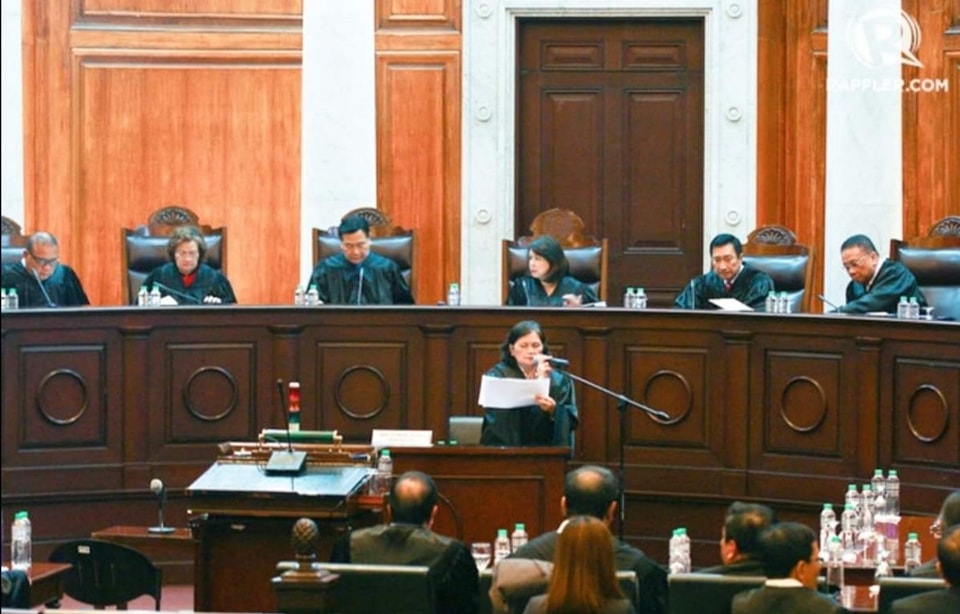
Photo from Rappler
From an Intern of the Supreme Court
By Kichi Kuy
“I remember the first flag ceremony I had as intern to the Supreme Court in the summer of last year. Sharing the courtyard with the Justices was stifling. “The highest court in the land, the national anthem, the most brilliant people in the legal profession,” something like that coursed through my head. More than awe, however, there was a bit of fear. That day was going to be my first, working for Chief Justice Sereno. It was difficult to not feel like a cadet about to be thrown into training camp. The boss was there, greeting everyone after the ceremony before going back up to work, and there I was, squirming from my thoughts, clueless about how stern she was going to be with her precious little interns.
Then, about the end of our first week, Chief came into the Court Attorneys’ offices without notice and changed my impressions instantly. After remarking to a few of her lawyers about matters concerning work, she briefly spoke with some of us interns. The Chief Justice I spoke with – or listened to, since it was difficult to “unchoke” and speak after she stood right by the doorway of our cubicle – was as much a boss as she was a friend. The first thing she asked us, jokingly, was whether any of her lawyers took the liberty of bullying the newest additions to her office. After sharing a bit of a laugh with us, Chief went on to say that the work was going to be challenging but that we were going to have fun. Then she left us with another parting statement about being watchful of bullies. She smiled and left.
The weeks did go by as she said they would. The pressure to do well was high, both self-imposed and otherwise, but it was exhilarating to think that I was part of, at least for a time, an undertaking that was helping to keep the Philippine justice system in order. I saw, first hand, the level of professional accountability the Chief held everybody to in seeing how hard everyone around me worked. Quite often, when the people at the office were consumed with their tasks, all I could hear was the sound of hands hacking at keyboards (because fast typing is a fundamental skill in any productive office). What I never heard was complaint. To the contrary, the Court Attorneys held the Chief in such high esteem, and they understood the work that needed to be done. They were proud to be employed in the highest court of the land and they were happy to be under CJ Sereno’s guidance. So was I.
Before the apprenticeship was over, we just had to have photos of us taken with the Chief. It was not going to be a matter of dispute. Nobody was going home without THE photo. So we had it taken, but more importantly, we got to speak with CJ again. She explained to us that her office was doing its best to de-clog the Court’s case load, and that was why assignments swarmed the Court Attorneys’ offices. That’s why everybody was working hard, from CJ herself, to the Court Attorneys, to the copy editing and footnoting team, to the secretaries, to the interns . . . everyone.
Among the many things I learned back then, work volume and accuracy of output were the two that got me shaking my head in pleasant disbelief. CJ and her team worked at an incredible pace, but nobody ever overlooked things. It was always everyone’s job to catch what others missed. No, there was no competition, there was teamwork. And I don’t know how else a system like that can work other than through full commitment from the people involved and excellent leadership by the person on top of everything. That’s what I saw in CJ Sereno.”
By Kichi Kuy
Intern, Supreme Court of the Philippines
August 2018
SHARE
